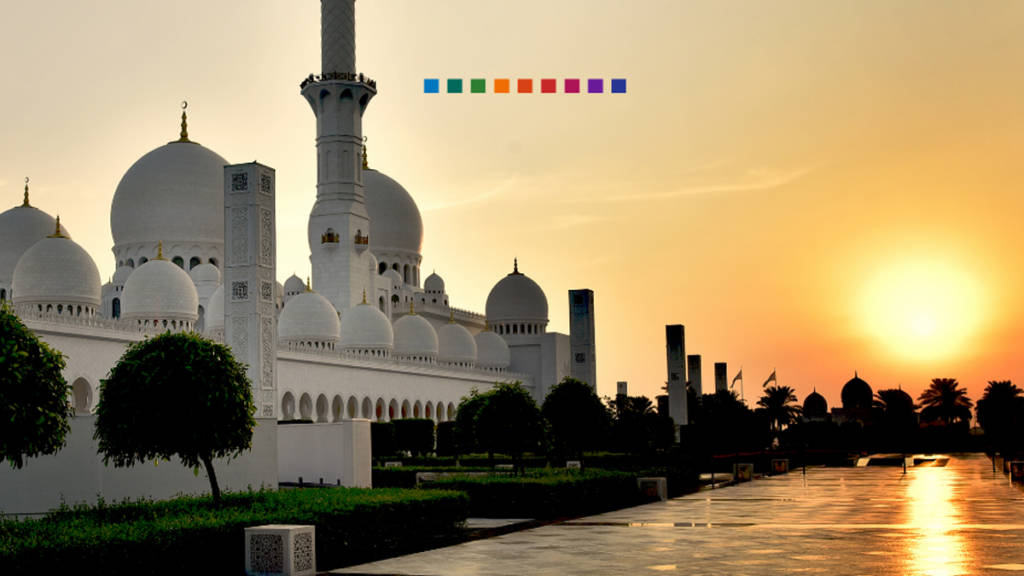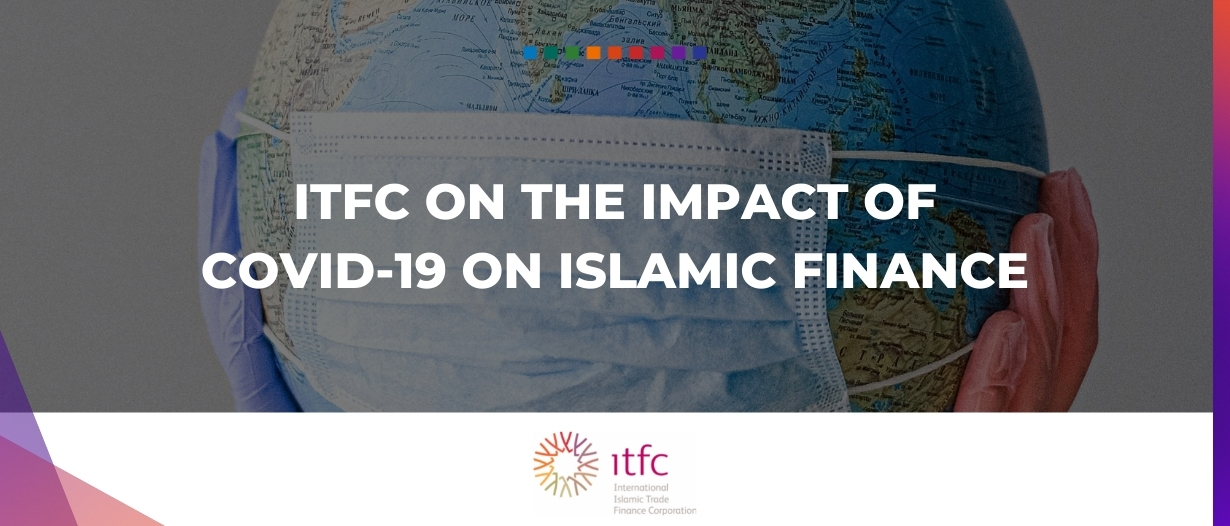TFG’s editor, Deepesh Patel (DP), interviewed Nasser Al-Thekair (NT), general manager of trade and business development at the International Islamic Trade Finance Corporation (ITFC), to discuss the impact of COVID-19 on Islamic Finance.
About Nasser Al-Thekair
Nasser M. Al-Thekair, general manager of trade and business development at ITFC, is responsible for leading the trade promotion and facilitation arm of the ITFC, growing the intra-trade among MCs, and enhancing development impact.
Additionally, Nasser leads ITFC’s efforts to develop new business lines and products, foster innovation, and build strategic relationships with key development partners to create new markets and mobilise resources for ITFC’s trade development initiatives.
Nasser leads the design and implementation of ITFC flagship programmes, including the Arab Africa Trade Bridges (AATB) Program and Aid for Trade Initiative for Arab States (AfTIAS), in addition to products and services such as the Islamic Factoring Chapter in collaboration with FCI.

Overview of the International Islamic Trade Finance Corporation
DP: Can you provide a brief overview of what ITFC does?
NT: The International Islamic Trade Finance Corporation (ITFC) is a member of the Islamic Development Bank (IsDB) Group.
It was established with the primary objective of advancing trade among OIC member countries, which would ultimately contribute to the overarching goal of improving socioeconomic conditions of people across the world.
Commencing operations in January 2008, ITFC has provided US$55 billion of financing to OIC member countries, making it the leading provider of trade solutions for these member countries’ needs.
With a mission to become a catalyst for trade development for OIC member countries and beyond, ITFC helps entities in member countries gain better access to trade finance and provides them with the necessary trade-related, capacity-building tools, which can enable them to successfully compete in the global market.
Breakdown of Shariah/Islamic finance
DP: At a high level, what is Shariah / Islamic finance?
NT: The term “Shari’ah” refers to a set of Islamic religious laws that govern aspects of the day-to-day life for Muslims, and provides principles and guidelines to help Muslims in their lives.
The main Shariah principles which govern Islamic finance are:
- Permissibility of trade
- Prohibition of usury and interest-based transactions (Ribā)
- Prohibition of ambiguity in transactions (Gharar)
- Prohibition of gambling and excessive speculation (Maysir)
Islamic finance is a type of financing activity that must comply with Shari’ah principles.
In 2019, Islamic finance assets amounted to US$2.88 trillion – the highest recorded growth for the industry since the global financial crisis.
It is also estimated that the global Islamic finance industry is expected to grow 10%-12% during 2021-22, due to increased Islamic bond issuance and economic recovery in the main Islamic finance markets.

Islamic factoring solution vs conventional factoring
DP: How does the Islamic factoring solution differ from conventional factoring?
NT: In general, the main difference between Islamic and conventional finance is the way risk is treated and shared.
Indeed, Islamic finance requires that financing be provided on the principle of profit and loss sharing.
According to Shariah law, financing can be provided through several different types of contracts.
Each type of contract specifies how the risk is shared between the company and the finance provider.
In terms of factoring, conventional factoring is based on selling receivables (debt) at a discount, which is prohibited under Shariah principles, while the Islamic solution is based on the actual involvement of the financier in the trade transaction.
Benefits of the Islamic factoring solution
DP: What are the main benefits and features of the Islamic factoring solution, and how are you working with FCI?
NT: The benefit is that the Islamic factoring solution is compliant with Islamic Shariah principles.
It achieves the same results as conventional factoring by providing liquidity at sight, and is very simple to implement.
There is absolutely no interruption on the business processes of the supplier; it helps in improving the supplier’s financial indicators; and there is no debt on the supplier.
Also, the Islamic factoring solution is not limited to Muslims or Islamic finance institutions.
Unique challenges in the Islamic factoring industry
DP: What are some of the main challenges to the continued growth of the Islamic finance industry?
NT: While Islamic finance has passed a robustness test by exhibiting greater resilience during the global financial crisis of 2008/9, the industry is still facing unique challenges that could limit its growth.
I could mention three major ones:
- Diversifying assets: There is little room for Shariah-compliant assets, which limit risk management capabilities. We observed the direct consequences of this during the last financial crisis, when large exposure to real estate of Islamic financial institutions resulted in falling asset values in many of these institutions operating in the OIC member countries, particularly in the MENA region.
- Infrastructure: The Islamic finance industry possesses somewhat of a weak Islamic finance-enabling infrastructure in many jurisdictions. This includes, among others, legislative, regulatory, legal, accounting, tax, human capital, and Shariah business frameworks.
- Limited skill base: The number of qualified practitioners, as well as Shariah scholars available for Shariah boards, is currently very low.
Repercussions of the pandemic on the industry
DP: The repercussions of the pandemic have permeated into every industry and sector. Has the pandemic changed client appetite? If so, in what ways?
NT: We all must adapt to the new realities. The ITFC’s five-year strategy, which is becoming no less relevant, has been refined to better manage economic disruption.
Now more than ever, we need to foster a strong, inclusive, and sustainable recovery in line with the SDGs.
We witnessed a shift towards digitalised trade and digital trade finance, which has been accelerated by social distancing.
Paper-based international trade is suffering from inefficiencies.
These inefficiencies were exacerbated by the COVID-19 crisis, which disrupted the supply chain. Digitalisation of trade is now an absolute necessity.
More than ever, there is a global shift in the industry towards the acceptance of digital solutions as the backbone of future international trade.
ITFC is giving a priority to digitalisation, and has identified some of the most promising digital trade solutions in the fintech arena, and has signed pilot or production agreements with the most relevant ones.
Raising interest in sukuk
DP: The continued warnings regarding the need for climate action has resulted in a shift in many industries towards a greener approach. How was the green sukuk market impacted by the last 12-18 months?
NT: Indeed, climate change, which is high on the international development and Islamic finance agenda, together with an increase in socially-responsible investing, have positioned the green sukuk as a key instrument for financing clean energy and resilient infrastructure projects.
There is rising interest in green sukuk, and we expect to accelerate demand on green sukuk in the coming years, particularly in Southeast Asia and GCC, as they seek to attract private capital to low-carbon and climate-resilient infrastructure projects.
The latest issuance was a US$750 million five-year instrument from the Indonesian government to finance sustainable projects.
The surge in global Islamic finance assets
DP: Global Islamic finance assets are projected to increase to USD $3.69 trillion by 2024. What has caused such a surge?
NT: There are many variables that have contributed to the growth of Islamic finance worldwide.
Perhaps the most important of which is the introduction of sophisticated regulatory regimes, which have slowly built up customers’ confidence, leading to an increased demand for Shariah-compliant financing.
Additionally, the resilience of the Islamic financial system during the Global Financial Crisis has driven many segments in the market to tap into this sector and invest in it.
How technology can increase transparency and traceability in value chains
DP: What are the biggest fintech opportunities within the Islamic finance space, and how is ITFC championing this?
NT: Islamic finance is about ethics, fairness, and transparency. Provenance over blockchain could be among the top fintech opportunities that can be utilised by Islamic FIs to preserve these values.
As a first step, ITFC has been working closely with its member countries and several fintechs to digitalise the trade cycle end to end.
Once this is implemented at scale, the provenance layer can be added to provide full transparency, traceability, and auditability for the entire value chain.

What’s next for the Islamic finance industry?
DP: Where do you see the Islamic finance industry going in the next 12-18 months?
NT: It is estimated that the global Islamic finance industry is expected to grow 10%-12% during 2021-22, due to increased Islamic bond issuance and economic recovery in the main Islamic finance markets. The $2.2 trillion global Islamic finance industry is expected to grow 10%-12% over This next year due to increased Islamic sukuk issuance, and a modest economic recovery in the main Islamic finance markets, according to SP Global Ratings.
Over the next 12 months, we could see progress on a unified global legal and regulatory framework for Islamic finance.
We believe that such a framework could help resolve the lack of standardisation and harmonisation that the Islamic finance industry has faced for decades, and make the industry more attractive to new players
 Australia
Australia Hong Kong
Hong Kong Japan
Japan Singapore
Singapore United Arab Emirates
United Arab Emirates United States
United States France
France Germany
Germany Ireland
Ireland Netherlands
Netherlands United Kingdom
United Kingdom










Comments are closed.